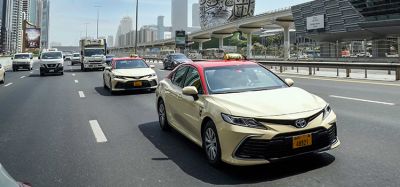MaaS platforms to replace 2.3 billion private car journeys every year by 2023
- Like
- Digg
- Del
- Tumblr
- VKontakte
- Buffer
- Love This
- Odnoklassniki
- Meneame
- Blogger
- Amazon
- Yahoo Mail
- Gmail
- AOL
- Newsvine
- HackerNews
- Evernote
- MySpace
- Mail.ru
- Viadeo
- Line
- Comments
- Yummly
- SMS
- Viber
- Telegram
- Subscribe
- Skype
- Facebook Messenger
- Kakao
- LiveJournal
- Yammer
- Edgar
- Fintel
- Mix
- Instapaper
- Copy Link
Posted: 6 September 2018 | Intelligent Transport | No comments yet
On-demand transportation services will lead to a more efficient use of road vehicles, less pollution, less congestion and seamless journeys.


A new study from Juniper Research has found that the adoption of Mobility-as-a-Service (MaaS) platforms will replace over 2.3 billion urban private car journeys annually by 2023, compared with 17.6 million globally in 2018.
This statistic is equivalent to 18 times the number of taxi journeys across New York in 2016.
MaaS integrates multi-modal transport services, including buses, taxis, rail and metro, offering on-demand services, resulting in transportation modal shifts.
The new research, Mobility-as-a-Service: Emerging Opportunities, Vendor Strategies & Market Forecasts 2018-2023, found that Western Europe will lead the adoption of MaaS, accounting for 83 per cent of global trips in 2023.
The success of public-private partnerships, the high quality of transport service provision and positive trial outcomes are some of the major factors for Europe’s traction.
Juniper forecasts that the growth of MaaS in the U.S. will be slower due to the highly-fragmented nature of the state and federal system.
Juniper also ranked 15 cities based on their readiness for large-scale MaaS service deployment. To do so, existing/planned stage of deployment, cohesion of public transport services and infrastructure development were all considered. After analysis, the top city was Helsinki, followed by Stockholm, Vienna, Amsterdam and Austin.
Research author, Nick Maynard, explained: “Helsinki has achieved its winning position in MaaS driven by collaboration between government and MaaS vendors. Stakeholder partnerships are fundamental to MaaS in order to develop a viable multi-modal system delivering significant cost- and time-savings to the user.”
The research forecasts that MaaS introduction will lead to annual time savings of over 500 million hours by 2023: equivalent to 90 hours per annum per MaaS user. As a result, peak traffic levels will be reduced, lowering both congestion and air pollution.
Related topics
Air Quality, Fleet Management & Maintenance, On-Demand Transport
Related organisations
Juniper Research
Related people
Nick Maynard








